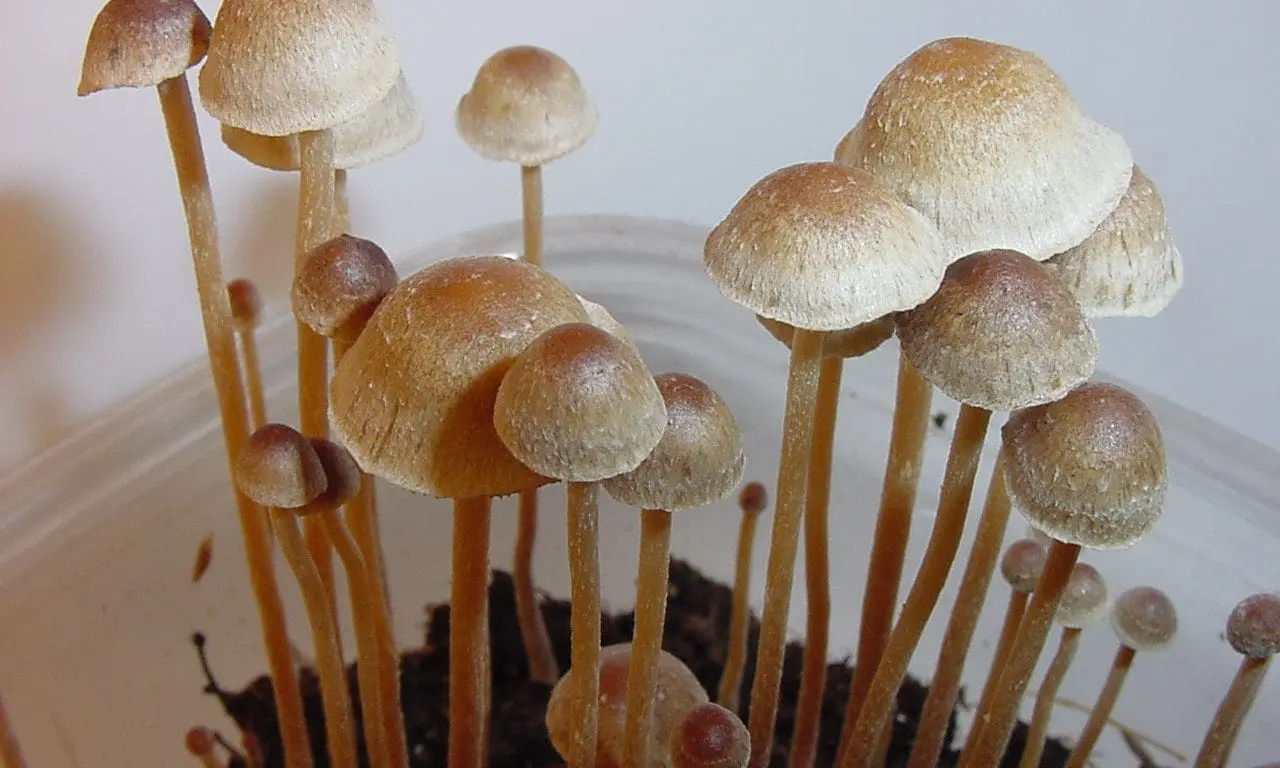Politics
Military To Start Testing Service Members For The Psychedelic Psilocin, Memo Shows

The U.S. Department of Defense (DOD) is expanding the list of drugs that military service members will be tested for to include the psychedelic compound psilocin, one of the two main components of psilocybin mushrooms.
In a memo obtained by Marijuana Moment, a DOD employee performing the duties of the deputy under secretary of defense for personnel and readiness advised military leadership that psilocin will be added to the department’s Drug Demand Reduction Program drug testing panel effective October 1.
The memo, dated August 18, states that the policy change being made due to “the risk of impairment and subsequent deterioration of security, military fitness, readiness, good order and discipline.”
“Drug abuse by Service members is a safety and readiness issue, and the Department must adapt our detection and deterrence program to address new and emerging drug threats,” Dr. Merlynn Carson wrote.
The DOD official said that attachments to the memo lay out “cutoff concentrations” for a positive psilocin test and other drugs in the testing panel.
Marijuana Moment reached out to DOD for copies of those attachments, but representatives were not able to immediately provide the documents.
“The Department of Defense maintains a zero-tolerance policy prohibiting drug use, and we remain committed to continually expanding drug testing capabilities and enhancing our education and prevention efforts by providing effective information on drug misuse, including the use of Psilocin,” an official told Marijuana Moment in an email.
The memo says that the “first priority” for psilocin testing under the revised drug panel “will be given to specimens collected under the auspices of probable cause, consent, or command.”
“In proportion to laboratory capabilities and capacity, second priority will be given to special testing requests for other collection modes, such as routine inspection-based collections, and specimens may also be randomly tested for psilocin,” it says.
At the same time that DOD has moved to test for psilocin, it’s also carrying out a congressional mandated psychedelic therapy pilot program for active duty service members and veterans. A more recent spending bill covering DOD would require a “progress report” on that initiative.
This latest memo also comes about two months after a DOD contractor sued the federal government, alleging that questions about his past marijuana use during a security clearance process violated his Fifth Amendment right against self-incrimination.
While the latest DOD policy update concerned a psychedelic compound, questions about federal workers testing positive for marijuana have also ballooned in recent years, as more individual states have legalized the drug.
In February, a memo to Air Force personnel in Massachusetts warned that not only marijuana but also hemp-derived cannabinoids, including CBD and delta-8 THC, are prohibited on military bases and related properties.
The Department of Defense and military branches have repeatedly warned service members and other military personnel that they’re prohibited from using cannabis products. In 2022, for example, the Air Force expressed concern that even using CBD-infused hand sanitizer or hemp granola could inadvertently compromise “military readiness.”
One of the first attempts by the U.S. military to communicate its cannabis ban came in the form of a fake press conference in 2019, where officials took scripted questions that touched on hypotheticals like the eating cannabis-infused burritos and washing cats with CBD shampoos. That was staged around the time that DOD codified its rules around the non-intoxicating cannabinoid.
After its initial 2019 announcement, the department more broadly reaffirmed that CBD is off limits to service members in notices published in 2020.
About one year after hemp was federally legalized, the Air Force sent out a notice that similarly warned against using CBD products that are commonly found on the market. A Massachusetts base of the Air Force told pilots in 2021 that they could face disciplinary action for possessing any type of hemp product, even if it’s “for your pet.”
Officials with the military branch also said the previous year that it wants its members to be extra careful around “grandma’s miracle sticky buns” that might contain marijuana.
The Navy, for its part, issued an initial notice in 2018 informing ranks that they’re barred from using CBD and hemp products no matter their legality. Then in 2020 it released an update explaining why it enacted the rule change.
The Coast Guard said that sailors can’t use marijuana or visit state-legal dispensaries.
A factor that may have influenced these policy updates is the Substance Abuse and Mental Health Services Administration’s 2019 release of guidance to federal agency drug program coordinators that outlined concerns about THC turning up in CBD products and causing failed drug tests. The agency issued an updated warning in 2020 after several more states voted to legalize marijuana.
Separately, a general in 2022 said that the Air Force and Space Force were reviewing marijuana policies and considering a “common sense” change that could give potential recruits a pass if they test positive for cannabis.
Meanwhile, a recent policy paper from a pair of companies in the trucking industry, for example, said the sector was short about 80,000 drivers last year—an issue it asserted was exacerbated by workers testing positive for marijuana under the federal Department of Transportation’s (DOT) strict, zero-tolerance drug policy.
The U.S. Supreme Court in April ruled in favor of a trucker who sued a cannabis company after he was fired over a positive THC test that he said was caused by consuming a hemp-derived CBD product.
Separately, a Substance Abuse and Mental Health Services Administration (SAMHSA) official earlier this year downplayed criticism from the CEO of a drug-testing company that more widespread use of saliva-based drug testing “means truckers who use cannabis will be able to do so with near impunity, as long as they avoid a drug test for a couple of days.”
Read the DOD memo on psilocin drug testing below:
Photo courtesy of Wikimedia/Workman.



